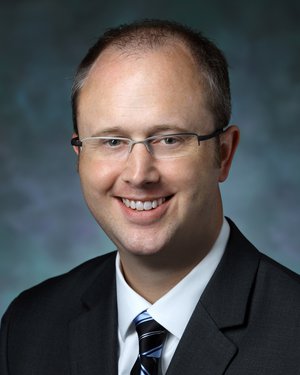Research Lab Results
-
Multiple Sclerosis Rehabilitation Research Program
Abbey J. Hughes, Ph.D., and Meghan Beier, Ph.D., are clinical psychologists, co-investigators and grant-funded clinical researchers specializing in neurorehabilitation psychology and multiple sclerosis. Dr. Hughes' research focuses on health behaviors and their impact on cognitive dysfunction in people with multiple sclerosis. Dr. Beier's research focuses on characterizing emotional and cognitive symptoms common among people with MS, refining neuropsychological assessment techniques, and developing interventions to ameliorate or slow MS-related cognitive decline. -
Zeiler Stroke Recovery Lab
Improved acute stroke care means that more patients are surviving. Unfortunately, up to 60 percent of stroke survivors suffer disability in arm or leg use, and 30 percent need placement in a longer term care facility. Recovering motor skills after stroke is essential to rehabilitation and the restoration of a meaningful life. Therefore, there is an urgent need to develop innovative new approaches to rehabilitation. Most recovery from motor impairment after stroke occurs in the first month and is largely complete by three months. Improvement occurs independently of rehabilitative interventions (for example, physical and occupational therapy), which predominantly target function through compensatory strategies that do not constitute true recovery. Dr. Zeiler and his team are conducting research to uncover how to augment and prolong this critical window of time. -
Laboratory of Vestibular NeuroAdaptation
The Laboratory of Vestibular NeuroAdaptation investigates mechanisms of gaze stability in people with loss of vestibular sensation. A bulk of our research investigates motor learning in the vestibulo-ocular reflex (VOR) using different types of error signals. In addition, we investigate the synergistic relationship between the vestibular and saccadic oculomotor systems as trainable strategies for gaze stability. We are particularly interested in developing novel technologies to assess and deliver improved rehabilitation outcomes. We are validating a hand-held computer tablet for assessment of sensorimotor function and participating in a clinical trial comparing traditional vestibular rehabilitation against a device developed in our laboratory that can unilaterally or bilaterally strengthen the VOR. Members of the lab include physical therapists, physicians, engineers, statisticians and post-doctoral fellows. The laboratory is supported by generous grant funding from NASA, the NIH, the DOD and grateful patients -
Swallowing Investigation in Physiology (SIP) Lab
The SIP Lab studies the mechanisms of normal and disordered swallowing. The team conducts research in the areas of swallowing rehabilitation after stroke, effects of aging on swallowing and measurement of swallowing physiology. -
Dagnelie Ultra Low Vision Lab
The Ultra Low Vision Lab is interested in assessing and enhancing the functional visual abilities of individuals with ultra-low vision. The lab uses psychophysical experiments to investigate innovative methods for improving visual prostheses. -
Outcomes After Critical Illness and Surgery Group
The Outcomes After Critical Illness and Surgery Group is focused on understanding and improving patient outcomes after critical illness and surgery. Research projects include improving long-term outcomes research for acute respiratory distress syndrome/acute respiratory failure (ARDS/ARF) patients; examining the long-term outcomes for acute lung injury/acute respiratory distress syndrome (ALI/ARDS) patients; and evaluating the effects of lower tidal volume ventilation and other aspects of critical illness and ICU care on the long-term physical and mental health outcomes of ALI/ARDS patients. -
Improving Outcomes Following Injury and Illness
Led by Stephen Wegener, Ph.D, this research group focuses on projects that have the potential to improve function and quality of life and reduce disability following injury or illness. These projects include research on cognitive, behavioral, psychological and health care system factors that affect outcomes following injury. -
Marsh Lab
The Marsh Lab studies stroke treatment, recovery and risk identification. The Marsh Lab created the Hemorrhage Risk Stratification (HeRS) score to predict hemorrhagic transformation in patients treated with anticoagulants. Currently, the Marsh Lab is using magnetoencephalography (MEG) to investigate how strokes impact higher level cognitive processes. Additional research in the lab focuses on treatment options for reversible cerebral vasoconstriction syndrome (RCVS).








